It all starts in September with our Jewish holiday season, but the apple stays with us all the way to Passover.
Now, I know what you're thinking: "Why apples?" Well, it's like the universe just knew they'd be the perfect fit for our fall festivities. You see, apples strut their stuff during autumn, and what better time for Jews all around the world to gather and celebrate a bunch of high holidays? It's like they're waving at us from the orchards, saying, "Hey, it's our time to shine, and you're invited to the party!"
Alright, so let's dish out some fun apple facts. These guys are part of the rose family and are basically the rockstars of the temperate-zone fruit world. We're talking more than seven thousand different forms of apples! And hey, in the U.S., we've got about a dozen that are super popular. But wait for it – they've even made their way to modern Israel as a major crop. Talk about well-traveled apples!
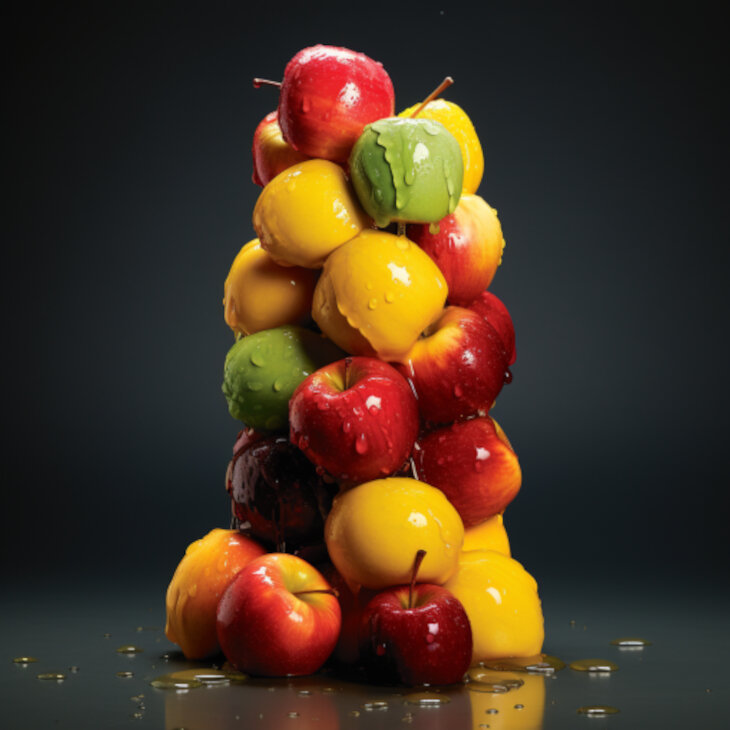
Now, you might be wondering about the Hebrew connection. In the Bible, apples go by the name "tapuach." But hold on a sec, because some smart cookies believe it might've been talking about a different fruit altogether – maybe a quince or a citrusy pal. You know, back in those biblical days, apples were all wild and untamed, not like today when we've got apples ruling the grocery aisles.
And that whole Garden of Eden drama? Well, turns out there's a bit of a mystery. Some folks think it was the apple, while others point fingers at the fig, grape, wheat, or citron. We're talking a biblical whodunit with fruits as suspects.
Now, let's talk traditions. Ashkenazi folks from Eastern Europe were in a bit of a pickle. They were living in places where biblical fruits weren't exactly partying. But you know what they had? Apples! These little rockstars came into the scene during fall and could hang around all winter, thanks to a cool hiding spot. And thus, a beautiful relationship was born – the Ashkenazi apple affair.
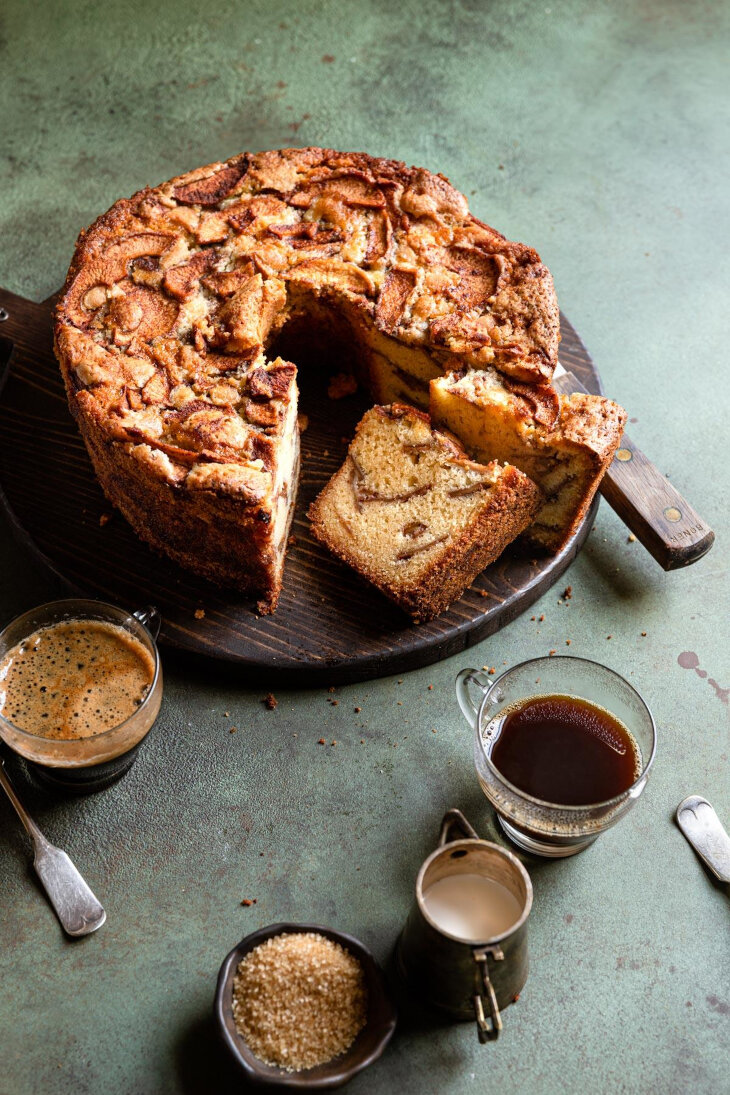
Ever dipped apples in honey to start your meal? Classic move! And how about those apple-packed goodies? Think apple cake, strudel, tart, and compote. Plus, apples made their way into other dishes like tzimmes, sweet kugels, and blintzes. It's like they just couldn't stay away from the party!
But wait, there's more. Sephardic folks brought the apple game strong with their Mansanada, a thick apple compote that's like a hug for your taste buds. And you've got Calcutta Jews throwing apples into the honey and rose water mix – talk about a fancy twist!
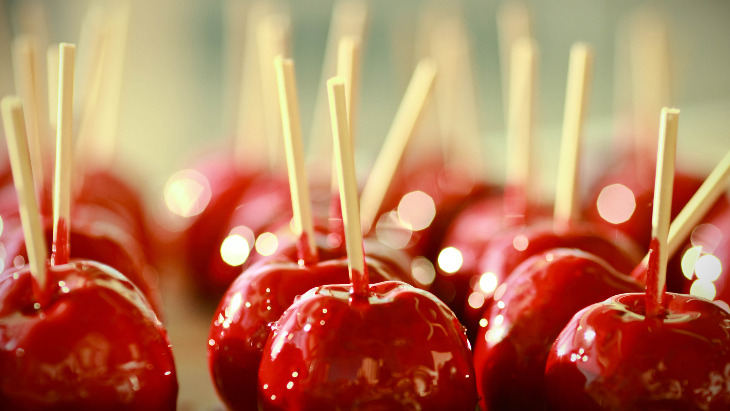
Persians? Oh, they're all about those stuffed apples (known as Dolmeh sib) during Sukkot. And Simchat Torah, you know, the celebration of wrapping up and restarting the Torah? Well, apples get to be the superstar treat, adorning paper flags and making everyone smile.
Hold up, Greek Jews didn't want to be left out. They've got a tale of the Maccabees feasting on duck with apples, probably high-fiving over their victory. Hanukkah rolls around, and apples keep the good times rolling with apple rings, fritters, and the superstar itself: applesauce. And who could forget that magical combo – applesauce on potato latkes? It's like the ultimate culinary friendship.
And you know what's cooler than being cool? Baking ideas from eighteenth-century central Europe. Jewish bakers threw their creativity into the mix, whipping up tortes and kuchens (German for cakes) filled with apples. These treats could handle the heat and stuck around until spring when we used apples to make the ubiquitous charoset for our Passover seder. So, it's official – apples are the true MVPs of our Jewish holiday shindigs.
So, next time you're savoring that apple treat during the fall festivities, remember – you're not just biting into a piece of fruit. You're tasting a slice of tradition, a dash of history, and a whole lot of love for our Jewish heritage. Keep those apples rolling, folks! 🍎🍏




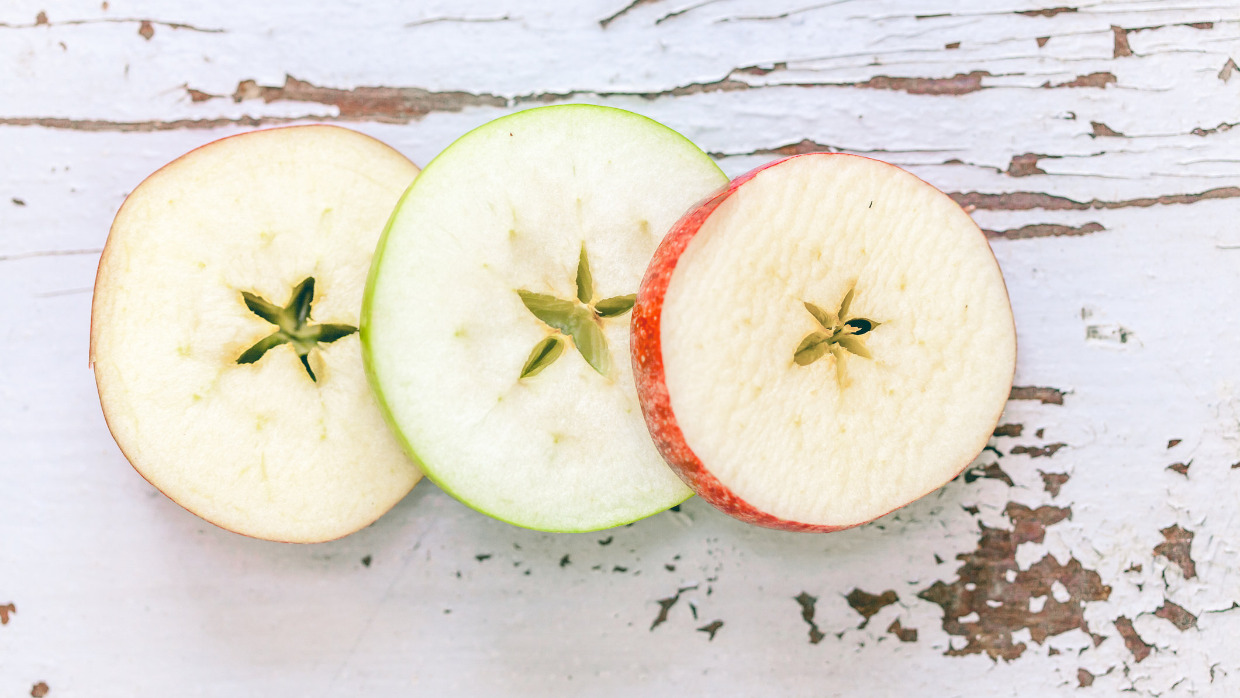


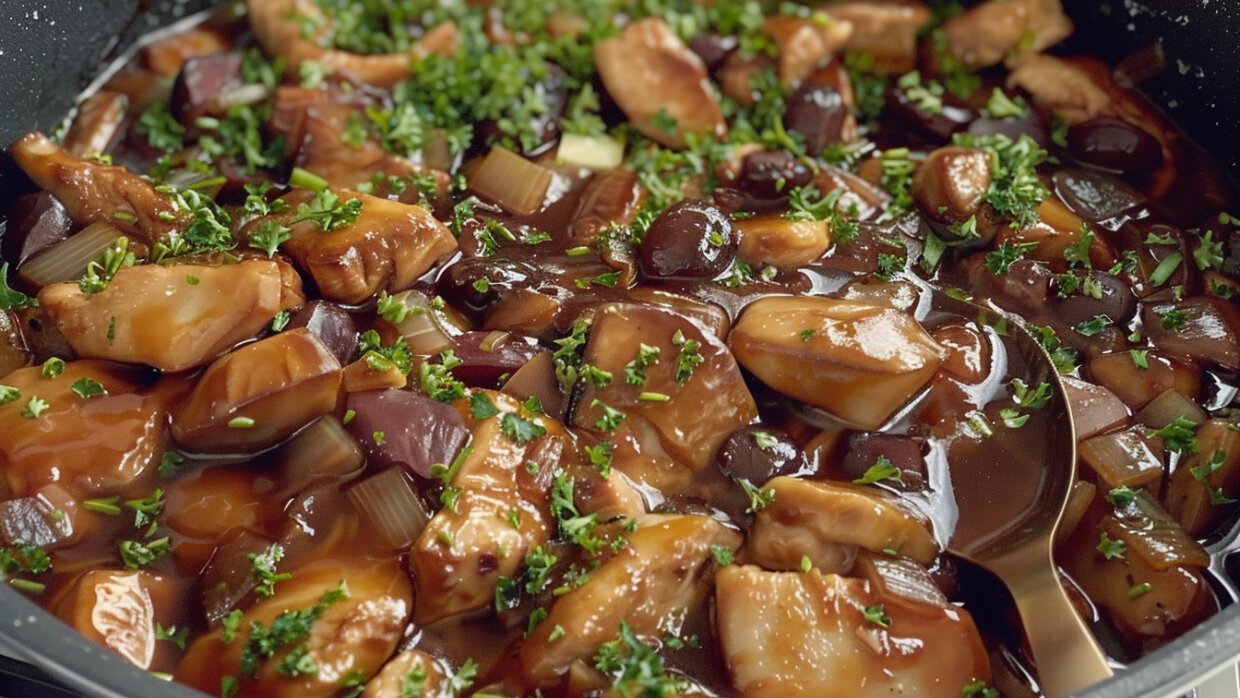

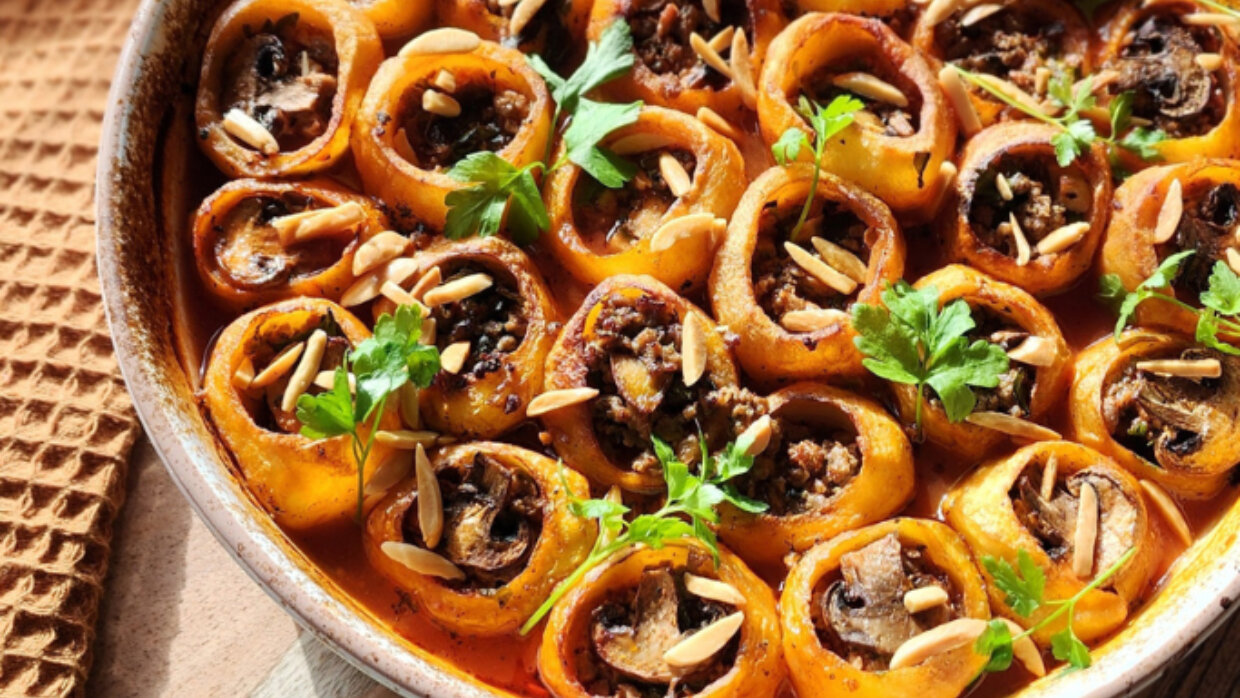


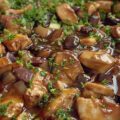




Yes, the eating of the forbidden fruit in the Garden of Eden is dramatic, and the traditional interpretation points to the apple as the fruit. But what gets eaten?
They disobey the commandment--their first commandment--to "be fruitful and multiply [in the Garden]" before donning the infamous telltale fig leaf aprons after they become one flesh incorrectly by eating the allegorical forbidden fruit of pleasure from the allegorical wrong tree in the allegorical Garden's center. Some would say they make a joke out of their marriage and God responds accordingly.